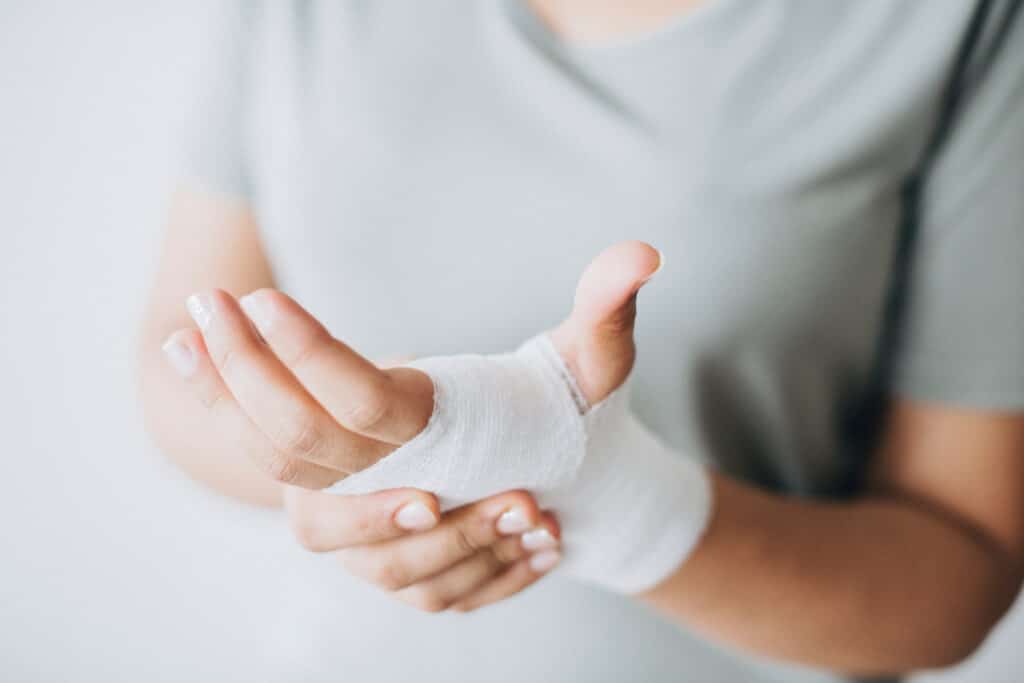
Accidents can happen anywhere, but it’s often at home, where minor cuts and wounds are sustained. Therefore, it’s crucial to determine when medical attention is necessary or if the wound can be treated at home. It’s always wise to have a well-stocked first aid kit containing essential items such as antiseptic solution, band-aids, gauze, and micro-pore tape. However, knowing when and how to use these items can be tricky.
If you do get a cut, the first step is to keep the wound clean and dry. Applying some first aid treatment at home can also help until you can visit a doctor. But how do you know when it’s time to seek medical attention?
It’s important to assess the severity of the wound. If it’s gaping or bleeding excessively, it may require stitches or further treatment to stop the bleeding. If the wound is very deep especially on hands or feet, a doctor may need to assess if there is any tendon injury which may require surgical repair. In addition, if the wound shows signs of infection, such as redness, swelling or pus it is essential to seek medical attention immediately as the wound may require more extensive cleaning or further antibiotic treatment may be necessary. If you are experiencing pain that is not relieved by simple analgesics such as paracetamol and ibuprofen, a doctor may need to take a look at it. For facial wounds where cosmetic outcomes are crucial, specialist input is sometimes necessary.
You may need a tetanus booster shot. Tetanus vaccines help to prevent tetanus from wounds that have been contaminated with the bacteria, Clostridium tetani. Wounds contaminated with dirt, soil, faeces or animal bites are at high risk for tetanus. The tetanus infection can be life-threatening. The need for a tetanus booster shot is multifactorial and depends on the extent of the wound. A booster shot is usually necessary every 5-10 years in adults fully vaccinated. For children, a doctor would need to assess how many doses they have completed and how many years it has been since the last dose.
Does my wound require sutures?
A doctor must assess the wound to see if sutures are required. If the wound is actively bleeding and applying pressure does not ease it, the doctor may need to close it. Additionally, if an animal bite caused the injury, a doctor may decide not to close the wound in view of risks of infection depending on the extent of the wound. Immunocompromised patients or patients with underlying medical conditions like diabetes are at higher risk of wound infection. As a result, they may require oral or topical antibiotics.
What are the wound management options at available at IMC?
We provide a wide range of minor procedures for adults and children at all four of our clinics. In many cases, the wound can be closed at our clinic. However, some lacerations may require a specialist review depending on the depth and location of the wound. Our doctors will be able to assess and advise accordingly. Depending on the mechanism of the injury, if the wound is very deep, you may require further imaging, like an X-ray, to rule out the possibility of foreign bodies. For example, if the wound was sustained from broken glass, it may be necessary to check for small fragments left in the wound.
Traditional suturing of wounds with either absorbable or non-absorbable sutures is available. Absorbable sutures are generally used for mucosal surfaces, such as the inner aspect of the lip, and non-absorbable sutures are typically used for other body parts, such as the scalp and limbs. Non-absorbable sutures typically need to be removed 8-10 days later but this is location dependent. Local anaesthesia is given before suturing. Suturing wounds is generally good for gaping wounds to stop bleeding and reduce the risk of infection. In addition, scarring with suturing is typically minimal.
Tissue glue (Dermabond Adhesive) is an excellent option for superficial wounds with non-jagged edges that are not actively bleeding. However, Dermabond cannot be used for infected wounds or if there is heavy bleeding.
Wound dressing with sterile strips, or steri-strips, is another excellent option for superficial straight lacerations under little tension. Steri-strips are typically kept on for 1-2 weeks. This method is used for minor simple cuts and wounds as there is a risk of premature wound separation.
The hair apposition technique is an excellent option for children with minor scalp injuries. If the wound is small and the hair length is satisfactory, the hairs on either side of the wound are twisted together and secured with Dermabond glue. Hair can be washed after three days, and the adhesive will fall off.
It is essential to know when to seek medical attention for wounds. If the wound is gaping, bleeding excessively, very deep, showing signs of infection, or causing unrelieved pain, it may require medical attention. A tetanus booster shot may also be necessary for wounds contaminated with dirt, soil, faeces, or animal bites. IMC clinics offer a wide range of wound management options, including traditional suturing, tissue glue, a wound dressing with sterile strips, and the hair apposition technique. Of course, it’s always wise to have a well-stocked first aid kit containing essential items to treat minor cuts and wounds, but knowing when and how to use them correctly is equally important.
Dr Vino Elangovan
Dr Vino is a medical doctor trained at the University of Manchester, UK, and has worked in various healthcare institutions in Singapore, gaining experience in multiple specialties such as emergency medicine, internal medicine, obstetrics and gynecology, general surgery, and geriatrics. She is passionate about providing holistic care to women and has presented her work at international conferences and published in the Eurasian Journal of Emergency Medicine. She is also skilled in performing minor surgeries and procedures and has extensive experience managing various minor injuries. Dr Vino was awarded the Graduate Diploma in Family Medicine by the National University of Singapore.


































